Through Karwan-e-Mohabbat, activists are on a mission to fight hatred and violence in India
An attempt to awaken our conscience and fight against the breakout of hatred in recent times, Karwan-e-Mohabbat is a journey much needed in this hour of insensitivity.
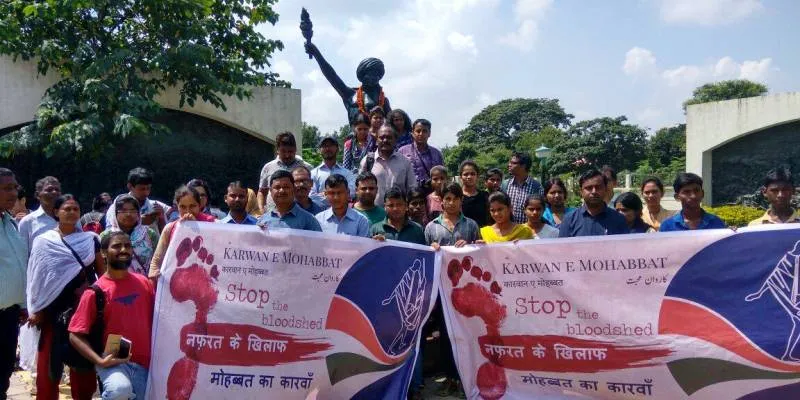
For a nation that boasts about its diversity, it is ironic that we leave no stone unturned when it comes to singling out individuals based on caste, religion, or even what they eat. The ideas of brotherhood and ‘love thy neighbour’ seem to be put into practice rather selectively because a person either looks different or practises a faith different from our own.
Mob lynchings, stemming from this culture of discrimination, are no longer uncommon, but that is not to say that they don’t paint a sad picture of humanity. What's worse is the attitude of being okay with this injustice as long as it doesn't affect you personally.
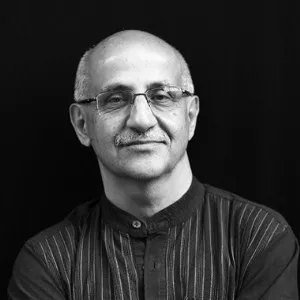
To put an end to this rising darkness and ignorance, Harsh Mander (62), a Delhi-based activist who works with survivors of mass violence and hunger, has proposed a collaborative civil society initiative — a month-long journey called Karwan-e-Mohabbat — to share pain, for atonement, for solidarity, and for love.
The growing trend of communal lynching
Hate crimes have been on the rise over the past decade. A glaring example is communal lynching, wherein an angry mob decides to take the law into its own hands. The victims, generally, find themselves in this position due to preconceived notions and prejudices against their community, caste, or race.
“These assaults are characterised by bystanders who actively support the killing, or do nothing to stop it. Pehlu Khan is killed on a busy national highway; in Una, attackers circulate videos of whippings, convinced of their valour and impunity; Akhlaq is lynched by his neighbours; Junaid is stabbed 30 times on a crowded train. But nobody bats an eyelid,” Harsh says.
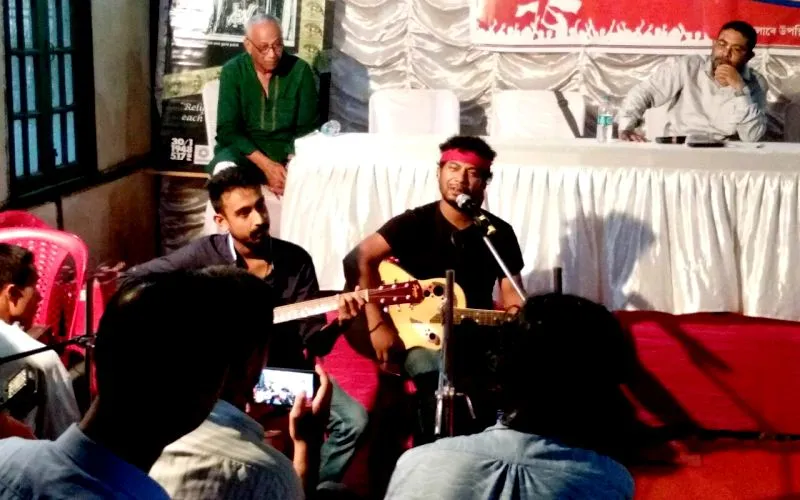
The Muslim, Christian, and Dalit minorities no longer live just in fear of humiliation and othering, acts that they are by now somewhat used to, but also of the persisting danger of imminent violence, of being vulnerable to attack anywhere — on a busy road, in a bus or train, in a marketplace, even in their homes.
This initiative seeks to raise important questions, of how answerable we as bystanders are, watching our brothers and sisters being burned and lynched while we stand mum, insensitively shooting a video or discussing the goings-on. “We need to interrogate the reasons for our silences, for our failures to speak out, and to intervene, when murderous hate is unleashed on innocent lives. We need our conscience to ache. We need it to be burdened intolerably,” says Harsh.
A twofold purpose
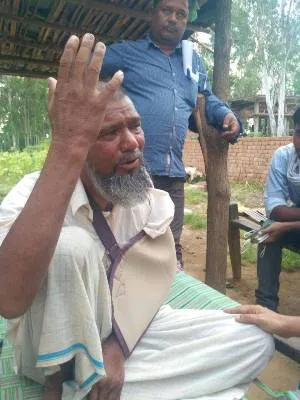
Karwan-e-Mohabbat aims at achieving a dual purpose of responding to the everyday fears of Muslims, Dalits, and Christians, and the worrying silences of the majority. According to Armaan Alkazi (25), another campaigner for the cause, “Karwan-e-Mohabbat is a journey that seeks to start a national conversation on the path this country is headed towards. It seeks to support families that have been victims of violence and heal communities that have had violence tear them apart. The journey is also a call of conscience to India’s majority.”
This campaign hopes to highlight incidents of violence that have been under-reported as well as draw attention to the long history of violence against minorities. It is a call to the silent majority to stand up against what is unjust. “It hopes to spur them into action by showing them that dissent is possible as well as give them an avenue to express their feelings,” says Armaan.
Come be part of this historic fight against silence
Karwan-e-Mohabbat will be undertaken by a group of 40 people who will travel together for a fortnight by road from one location to another, visiting families, offering condolences, and hosting Aman Sabhas.
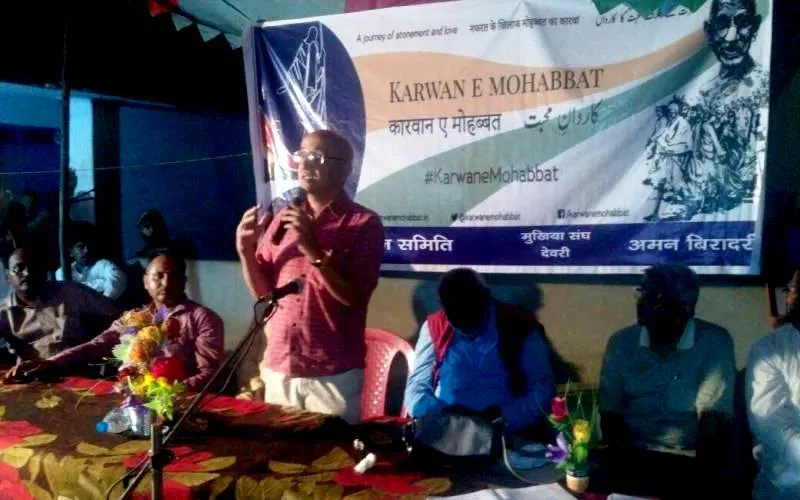
This month-long journey for sharing pain, atonement, solidarity, and love commenced in Nellie, Assam — the place that witnessed the largest post-Partition massacre — on September 4.
Divided into three main phases, the Karwan will cover Assam, Jharkhand, and Karnataka in the first, moving on to gather at Delhi’s Tilak Vihar, where the Sikh widows suffered from a monumental denial of justice
The main aim of the Karwan is to visit families that have suffered from lynch attacks in each of the states, offering solidarity. The idea is also to assess how each family is coping and their needs for the pursuit of justice.
Before the journey began, an advance team visited the families in the month of August and spent at least a week there. This was to try and constitute an Aman Committee, with members of Muslim, Dalit, and Hindu groups (and Adivasi and Christian where applicable). These Aman Committees will commit to supporting the families in the pursuit of justice and where livelihood is concerned, also promoting amity, goodwill, and peace in the larger community. After this they will provide legal and community rehabilitation support by connecting the families to social security schemes and entitlements.
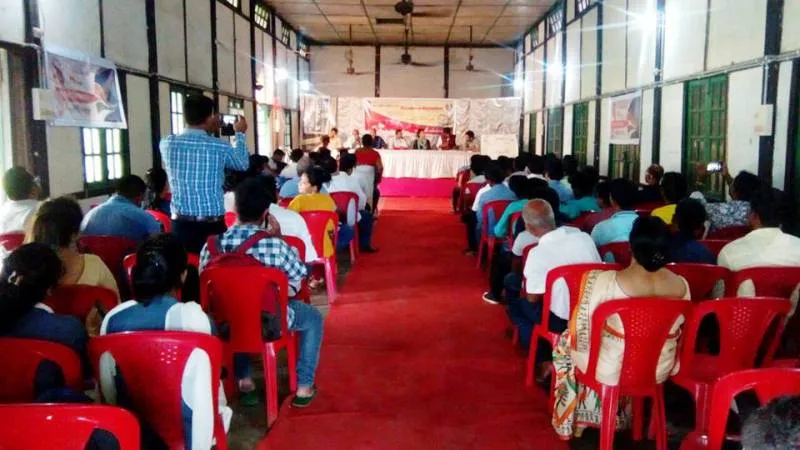
The purpose of this is to organise an Aman Sabha with the help of the committee after meeting each family during the journey. The Aman Sabhas are a way of engaging the immediate community with the issue of lynching and hate and beckoning them to provide social support to the victims and survivors.
This initiative, open to all, hopes to include a team of change makers in the form of writers, poets, photographers, videographers, speakers, singers, musicians, and even stand-up comedians, who will record and communicate to local audiences what they witness in real time as they travel.
The entire journey will cost the team Rs 20 lakh, funds they have taken to crowdfunding to raise. The money raised will be used to support four avenues — the logistics team, an advance team, the documentation crew, and the actual journey itself. With the campaign ending on September 14, they have presently raised a little over Rs 7 lakh.
Help change mindsets
In a country so densely populated, there is competition for life in general. People tend to direct all their energies towards their own lives, loved ones, and problems. This initiative is an eye-opener about our own ignorance says, Mansi. “I believe we need to talk about this fear, the violence, the lynching, the rapes, the paedophilia, the inhuman and shameful treatment of the poor, and several other real problems our country is facing. These problems, more than their economic counterparts, weigh down the soul of our nation.”
Shedding light on how Karwan-e-Mohabbat can help bring about a change, Armaan adds, “There are three reasons why people are unwilling to speak against such incidents. Firstly, because they're afraid of repercussions if they do; secondly, they're not affected enough to do so; and lastly, they themselves maybe feel hatred towards a specific community. To the first kind of person we hope with our open defiance to inspire them to be involved, to the second we hope to move them into action, and to the third we wish to appeal to their conscience.”
This initiative, if viewed as a protest or a revolt, is a protest against our own silence, a revolt against our own indifference to what is happening to our Indian brothers and sisters who do not belong to a majority orientation. It urges us to step up and be part of the population that fights against injustice and not the ones who watch and stay silent. For silence may very well cost us our own loved ones someday.
Enter the SocialStory Photography contest and show us how people are changing the world! Win prize money worth Rs 1 lakh and more. Click here for details!







